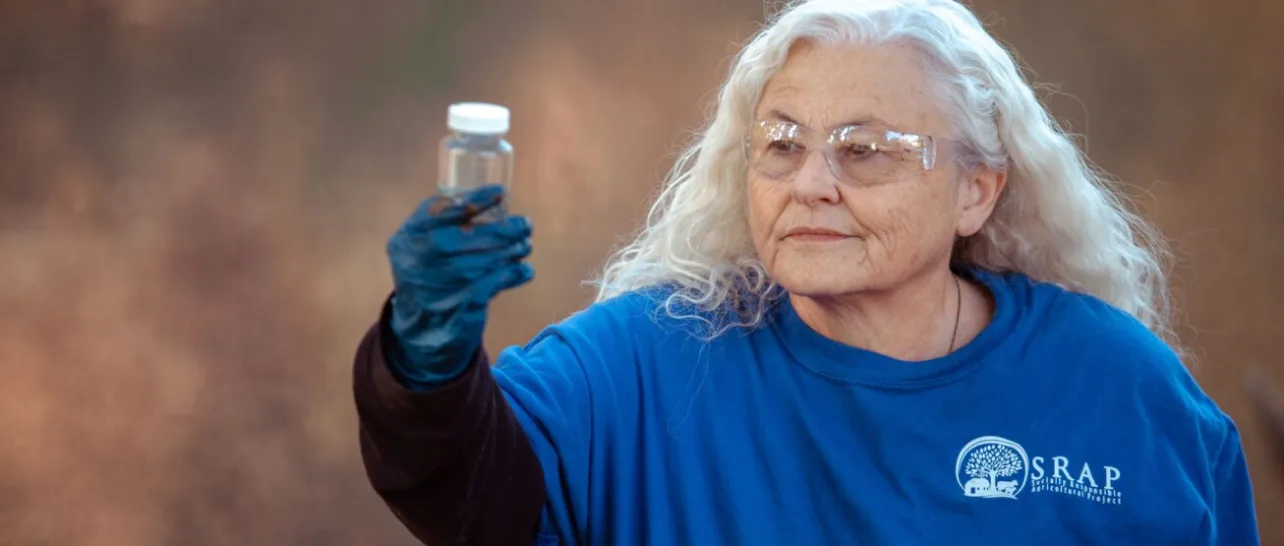Share
Lynn Henning and her husband were enjoying life on their small farm in rural Michigan when a false accusation made by the operator of an industrial livestock operation changed the course of their lives.
Their 300-acre corn and soybean farm in Lenawee County, Michigan, is located within 10 miles of 12 industrial livestock operations, also known as factory farms or concentrated animal feeding operations (CAFOs).
Industrial livestock facilities, which resemble more of a factory than a farm, confine thousands—and sometimes millions—of animals without adequate space or access to open air or pasture.
In 2000, as these operations began to dot Lynn’s small rural community, a nearby CAFO operator falsely accused her and her husband of reporting the facility’s waste discharges to state officials.
While Lynn and her husband were innocent of this accusation, it’s worth noting that factory farms produce nearly 13 times more waste than the entire U.S. population. But unlike municipalities, they aren’t required to build sewage treatment facilities to process all that waste safely. Instead, it’s stored in open pits called “manure lagoons” and applied untreated to surrounding land.
The accusation prompted Lynn, her husband, and other concerned neighbors to form a group called Environmentally Concerned Citizens of South Central Michigan (ECCSCM), which organized to hold CAFOs accountable for pollution.
Before she knew it, she was contacting state and federal agencies, urging them to take action to protect public health and the environment. Lynn collected as much information as possible about factory farm spills, their location, and points of origin. Soon, she understood the practices that led to their local waterways being contaminated.
After decades of tirelessly sounding the alarm, Lynn has helped expose the egregious polluting practices of factory farms in rural Michigan.

As a result of her activism, Lynn and her family were subjected to harassment and intimidation by the industry.
Her granddaughter’s bedroom window was shot out. Her mailbox has been blown up. Dead animals have been left on her front porch. And she’s been followed and run off the road while doing water quality monitoring.
Despite these threats, Lynn continued to help farming communities mitigate the effects of pollution from factory farms.
In 2010, she was awarded the Goldman Environmental Prize for her work, which gained attention at the U.S. Environmental Protection Agency and prompted state regulators to issue thousands of citations for water quality violations.
Today, Lynn serves as SRAP’s Water Rangers program director, where she helps rural communities protect their right to clean water and hold industrial livestock operations accountable for pollution.
The Water Rangers program provides free water testing training and offers instruction on how to document and report pollution violations to local, state, and federal regulators. The program is the only one in the nation that offers CAFO-focused water quality monitoring training free of charge to anyone in the U.S.
About SRAP
For more than 20 years, SRAP has served as a mobilizing force to help communities protect themselves from the damages caused by industrial livestock operations and to advocate for a food system built on regenerative practices, justice, democracy, and resilience. Learn more at sraproject.org.

